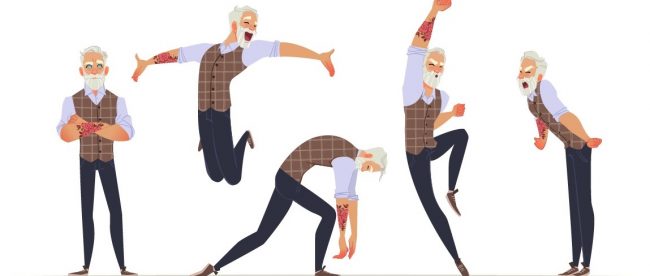Mythbusting – common claims about sleep. True or false?
Sleep is important for our physical and mental health, but around a third of adults in the UK still struggle with a lack of sleep. And as we get older, it gets even harder.
Sleep is clearly a subject on many people’s minds, but with that, dozens of myths have developed over the years. So how do you spot the difference between science of sleep and simple old wives’ tales?
Does drinking warm milk help you sleep?
Well, milk does have tryptophan in it. This produces serotonin, which is one of the happy chemicals which contributes to feelings of happiness and wellbeing when released in the brain. However, there is no scientific evidence to support the idea that warm milk helps you to sleep.
Older people need less sleep
Not true! Scientists and sleep experts recommend that adults have between 7-9 hours’ sleep a night. This does not change as we get older. What does change is your sleep pattern – you might find that as you get older you sleep less at night time, but that is often because you may have more rest or a nap during the day.
Snoring isn’t harmful
Generally speaking, snoring is annoying for partners, but isn’t bad for the snorer. However, for some people snoring is a sign of sleep apnoea, which is a dangerous condition. During sleep, some people snore and their breathing pauses. The person wakes suddenly, gasping for breath. People who have sleep apnoea may feel tired during the daytime due to the constant disruptions with their sleep. Sleep apnoea is treatable so if you feel that you or someone you know is showing signs, seek medical advice.
Chamomile tea helps you sleep
For many years people have talked about the calming effects of chamomile. It has little or no caffeine in it, and we know that cutting down on caffeine is known to have a positive effect on the quality of your sleep, however there is no scientific evidence to support the myth that chamomile tea helps you sleep.
Cheese gives you nightmares
Back in 2005, The Cheese Board conducted a study which included giving different cheeses to a range of people to monitor the effects it had on them at different times of the day. Though cheese was linked with increased amount of dreams, in 75% of the participants there were no nightmares. So, there is no scientific evidence to support cheese before bed gives you nightmares.
Not everyone dreams
Many people say they do not remember their dreams, but they do have them. Dreams help you to process your experiences and emotions, and are important for overall health and wellbeing. Studies have also led us to believe that dreams actually help you to develop problem solving skills, and are connected to your creativity.
Your body gets used to a lack of sleep
This is untrue. As above, most adults need between 7-9 hours’ sleep a night. Though you may cope for a short while, eventually not getting enough sleep will have an impact on you both physically and psychologically. More and more research is pointing to the correlation between poor quality sleep and diseases and illnesses including high blood pressure, obesity, diabetes and depression.

Counting sheep will help you nod off
Um, sorry but no. Keeping the mind active is unlikely to be a very useful aid to sleeping. Focusing the mind on visualising something much more relaxing, such as sitting in a comfy chair in front of a warm fire or sitting on a beach on holiday, have been shown to be more helpful as they relax the mind with something much more pleasant and calming.
Jane Bozier is a mental health nurse and sleep expert, whose guided imagery exercises are featured in new sleep app, Rise – available to download from the App Store and Google Play.




Leave a comment